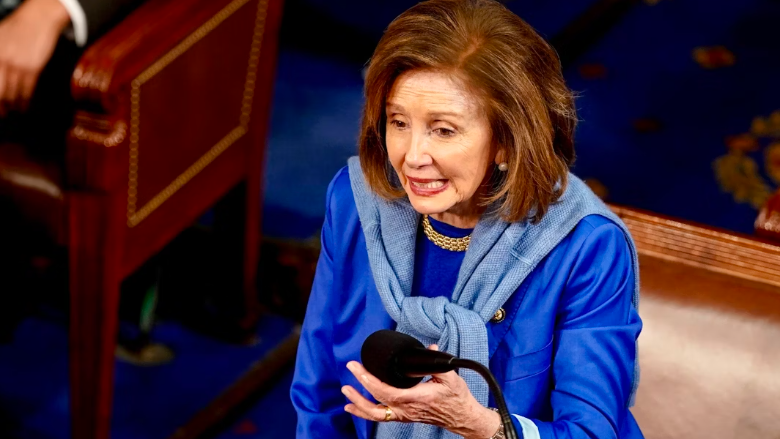Nancy Pelosi Falsely Claims Her Husband Was A ‘Victim’ Of Trump’s Rhetoric
Former House Speaker Nancy Pelosi has come under fire for suggesting that her husband, Paul Pelosi, was the victim of an attack inspired by President-elect Donald Trump’s rhetoric. Critics argue that her claims lack evidence and represent an attempt to politicize a violent incident for partisan gain.
The Incident and Pelosi’s Claims
The attack on Paul Pelosi occurred in October 2022, when assailant David DePape broke into the Pelosi residence in San Francisco, reportedly searching for Nancy Pelosi. DePape assaulted Paul Pelosi with a hammer, leaving him hospitalized. While DePape’s actions were politically motivated, Pelosi’s attempt to tie the attack directly to Trump’s rhetoric has raised eyebrows, as no concrete evidence has surfaced linking the incident to Trump.
Speaking recently, Pelosi implied that the assault was a result of the political climate fostered by Trump, a narrative she and other Democrats have pushed since the incident. However, this framing has been called into question as more information about DePape’s background and motivations has emerged.
The Assailant’s Background
DePape, a Canadian citizen, had a history of promoting bizarre and far-reaching conspiracy theories. While some of these theories aligned with far-right narratives, others spanned unrelated topics, indicating a broader pattern of erratic behavior rather than a direct connection to Trump.
Court documents and law enforcement reports revealed DePape’s intent to confront Nancy Pelosi specifically due to her role as a prominent political figure. However, attributing his actions solely to one political figure or movement oversimplifies the issue and overlooks his broader psychological and ideological instability.
Criticism of Pelosi’s Narrative
Pelosi’s remarks have drawn criticism from political observers who accuse her of exploiting a tragic event for political purposes. By blaming Trump without evidence, Pelosi risks undermining the credibility of her argument and further polarizing an already divided political landscape.
“Blaming Trump for this attack is not only unfounded but reckless,” said one commentator. “It distracts from the real issues and reduces a complex situation to partisan finger-pointing.”
Critics argue that this is part of a broader pattern among some Democratic leaders, who often link acts of violence or unrest to their political opponents, even when the evidence does not support such claims.
The Importance of Context
The incident highlights the dangers of escalating political rhetoric on all sides, but attempting to assign blame without clear evidence risks inflaming tensions further. Analysts have urged leaders to approach such incidents with caution and avoid making baseless claims that could erode public trust.
By focusing on unsubstantiated connections to Trump, Pelosi’s comments may overshadow important discussions about political violence and how to address it without exploiting tragedy for partisan gain.
Nancy Pelosi’s attempt to link the attack on her husband to Trump’s rhetoric has been met with skepticism, with many viewing her claims as a baseless political tactic. The incident serves as a reminder of the need for responsible leadership and evidence-based discourse, particularly in a time of heightened political tensions.
On President-elect Donald Trump’s plan to pardon Jan. 6 defendants, @SpeakerPelosi says, “It’s really a strange person who’s going to be President of the United States, who thinks that it’s okay to pardon people who are engaged in an attack.” When asked if she would be… pic.twitter.com/mvD4RrxNux
— Face The Nation (@FaceTheNation) January 5, 2025

